Science
Love, Joy, Respect and Excellence.
High-quality science education provides the foundations for understanding the world through the specific teachings of biology, chemistry and physics. Our children will be encouraged to understand how science can be used to explain what is occurring, make predictions about how things will behave, and analyse their findings.
At Stanground St John's we provide a knowledge rich curriculum, which encourages children to recognise the power of rational explanation and to develop a sense of excitement and curiosity about the natural world. Through carefully planned, sequential steps, children are introduced to the human body, animals and the environments they live in, plants and their features, forces in nature, weather and what lies beyond the planet we live on. Over time their knowledge will deepen as key concepts are revisited and built upon.
Our children are encouraged to use their scientific knowledge when testing a theory or undertaking an enquiry. We ensure that this substantive scientific knowledge is taught first to ensure that they fully understand the elements, and are able to make informed observations about the processes that they see. Gathering information, recording data, creating graphs and interpreting findings are all essential skills that children will have opportunities to apply as they work through the curriculum. Such enquiries include observing over time, identifying, classifying, grouping, comparative and fair testing and gathering information. These enquiries help to deepen understanding of nature and processes, whilst gaining a better understanding of the purpose and uses of science both today and in the future.
National Curriculum Aims
The national curriculum for science aims to ensure that all pupils:
- develop scientific knowledge and conceptual understanding through the specific disciplines of biology, chemistry and physics
- develop understanding of the nature, processes and methods of science through different types of science enquiries that help them to answer scientific questions about the world around them
- are equipped with the scientific knowledge required to understand the uses and implications of science, today and for the future
Intended Outcomes - Key Stage One:
By the end of Key Stage 1 pupils should be helped to:
- asking simple questions and recognising that they can be answered in different ways
- observing closely, using simple equipment
- performing simple tests
- identifying and classifying
- using their observations and ideas to suggest answers to questions
- gathering and recording data to help in answering questions
Intended Outcomes - Lower Key Stage 2 (Year 3 and 4):
By the end of Lower Key Stage 2 pupils should be helped to:
- asking relevant questions and using different types of scientific enquiries to answer them
- setting up simple practical enquiries, comparative and fair tests
- making systematic and careful observations and, where appropriate, taking accurate measurements using standard units, using a range of equipment, including thermometers and data loggers
- gathering, recording, classifying and presenting data in a variety of ways to help in answering questions
- recording findings using simple scientific language, drawings, labelled diagrams, keys, bar charts, and tables
- reporting on findings from enquiries, including oral and written explanations, displays or presentations of results and conclusions
- using results to draw simple conclusions, make predictions for new values, suggest improvements and raise further questions
- identifying differences, similarities or changes related to simple scientific ideas and processes
- using straightforward scientific evidence to answer questions or to support their findings.
Intended Outcomes - Upper Key Stage Two (Year 5 and 6):
By the end of Upper Key Stage 2 pupils should be helped to:
- planning different types of scientific enquiries to answer questions, including recognising and controlling variables where necessary
- taking measurements, using a range of scientific equipment, with increasing accuracy and precision, taking repeat readings when appropriate
- recording data and results of increasing complexity using scientific diagrams and labels, classification keys, tables, scatter graphs, bar and line graphs
- using test results to make predictions to set up further comparative and fair tests
- reporting and presenting findings from enquiries, including conclusions, causal relationships and explanations of and a degree of trust in results, in oral and written forms such as displays and other presentations
- identifying scientific evidence that has been used to support or refute ideas or arguments
